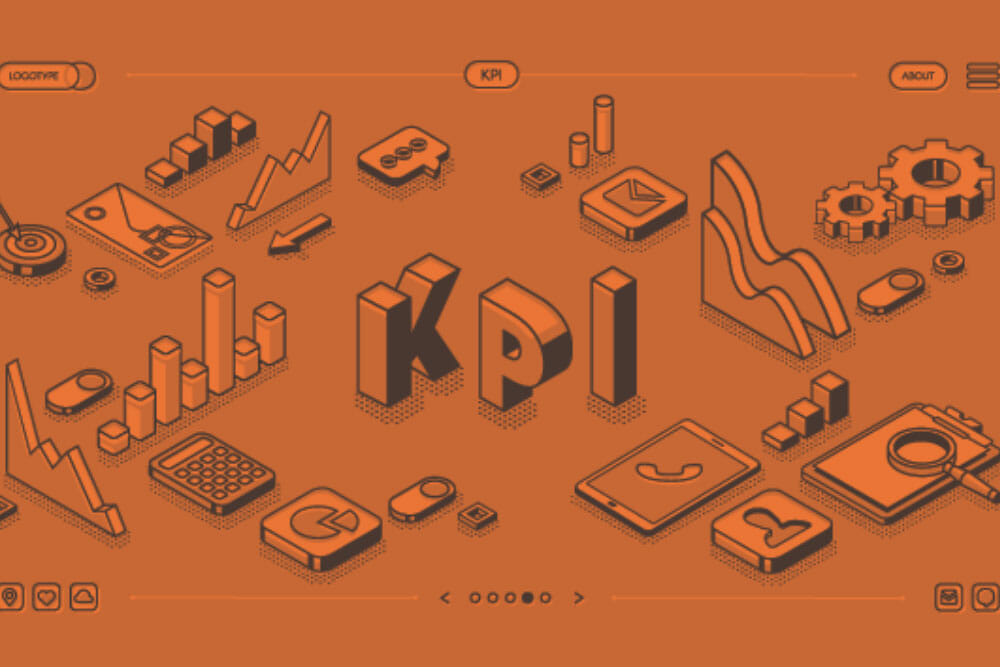At its best and most effective, marketing is a fundamentally goal-oriented practice. Successful professionals understand that the best marketing activities are all linked to a business’s broader objectives. Setting targets and selecting strategies that support these objectives is the most important part of our jobs.
While we all know what we should be doing, many marketing professionals of all levels struggle to find the right key performance indicators (KPIs) to measure our results. It can often be difficult to understand or explain how digital marketing results are connected to our organization’s overall objectives. Further, it’s not uncommon for our organizations/clients to have only a basic understanding of how marketing supports their business.
When the time comes to share your results with your stakeholders, having a firm understanding of your marketing’s KPIs is critical to your success. More importantly, thorough knowledge of what your KPIs mean (and how to turn them into consistent results for your business) can help make your marketing a key driver of business growth for years to come. Read on to learn about five of the most important KPIs for B2C marketing, as well as how to use insights from your KPIs to create a marketing system that delivers consistent results.
![Full Length Design [above 1. Website Traffic] website traffic](https://atriumdigital.com/wp-content/uploads/2021/10/Full-length-design-above-1.-Website-Traffic.jpg)
1. Website Traffic
Knowing how many people visit your website is essential to any digital marketing strategy. Most modern tactics, including online advertising and search marketing programs, are focused on driving traffic to your company’s site; knowing how many visitors you get is essential to judging the success or failure of these strategies.
However, it’s not enough to simply know how many visitors you get; it’s also essential to know where they came from. Attribution (knowing where and how a customer found their way to your site) is a critical part of understanding your website traffic data. Thankfully, Google Analytics provides most of the tools you need to capture, analyze, and fully understand your website’s traffic data.
![Side Blog Graphic [LEFT 2. Social Engagement] social engagement](https://atriumdigital.com/wp-content/uploads/2021/10/Side-blog-graphic-LEFT-2.-Social-Engagement.jpg)
2. Social Engagement
In the modern digital marketing landscape, social engagement metrics are often considered “vanity metrics,” if not full-on red flags for businesses. After all, it can be challenging to draw a direct link between your marketing’s performance on social platforms and actual sales and revenue.
However, especially in the B2C landscape, social engagement indicators including likes, shares, comments, and follows on social media and website can greatly influence your potential customers’ perception of your brand and their ultimate buying decision. In fact, recent studies show that customers rank recommendations from members of their social media circle as the third most important factor in their buying decisions, behind only recommendations from friends and family members. While most businesses won’t live or die by their social media presence, a social marketing program focused on boosting engagement can help boost your brand’s perception and visibility.
3. Conversion Rate(s)
No matter what type of business you’re marketing, your conversion rates are essential metrics for measuring your performance. Moreso than any other metric, conversion allows marketers to see what percentage of their generated traffic delivers tangible value for their business.
Typically, conversion refers to the percentage of total visitors who turn into paying customers. However, the concept can also be extended to any action a customer takes on your site. For example, savvy marketers could track the number of newsletter signups generated by a landing page, follows on social media, submit a contact form and more. Tools like Google Analytics 4’s event-driven data model make it easy to apply conversion principles to nearly any aspect of your marketing, giving you access to further insight into your marketing’s performance. Conversion rate optimization programs are ideal for understanding and optimizing every customer interaction with your marketing, not to mention turning them into measurable results.
![Side Blog Graphic [RIGHT 3. Conversion Rate(s)] conversion rates](https://atriumdigital.com/wp-content/uploads/2021/10/Side-blog-graphic-RIGHT-3.-Conversion-Rates.jpg)
![Side Blog Graphic [LEFT 4. Customer Loyalty & Retention] customer loyalty and retention](https://atriumdigital.com/wp-content/uploads/2021/10/Side-blog-graphic-LEFT-4.-Customer-Loyalty-Retention.jpg)
4. Customer Loyalty & Retention
Customer loyalty and retention is critical to the long-term success of any B2C business. Using digital marketing to create repeat customers offers stellar ROI while costing anywhere between 5-25X less than acquiring new customers.
Calculating customer retention is fairly simple, using CRR = [[(E-N)/S] x 100:
- Start with the number of customers at the end of a given time period (E),
- Subtract any new customers gained during that time (N),
- Divide that number by the number of customers you had ad the beginning of the time period (S),
- Multiply that number by 100 to get a percentage.
While calculating your retention is easy, determining exactly why your customers remain loyal can remain more challenging. Using tools like the Net Promoter Score (NPS) survey, as well as A/B testing with common customer retention strategies, can help you determine the right marketing tactics to increase your customer loyalty.
![Full Length Design [above 5. Marketing Return On Investment (ROI)] marketing return on investment](https://atriumdigital.com/wp-content/uploads/2021/10/Full-length-design-above-5.-Marketing-Return-on-Investment-ROI.jpg)
5. Marketing Return on Investment (ROI)
At the end of the day, much of the work we do as professionals will be evaluated in terms of return on investment (ROI). The most successful marketing strategies are inherently linked to the value they provide in real-world sales and revenue.
There are numerous ways to calculate marketing ROI; the most suitable method for you will depend on your business, its objectives, and the data you have available on your marketing performance. Generally speaking, the more data you can incorporate into your ROI calculations, the better. While quick and simple methods are good at providing a high-level overview of your performance, they often lack the necessary detail to evaluate individual components of your digital marketing mix. Calculating ROI for each individual strategy or using a combination of different calculation methods can provide more actionable data you can use to improve your performance over time.
Final Notes
The only way to achieve consistent digital marketing performance over time is through data-driven insight. Continually evaluating KPIs is one of the most important ways for marketers to measure success and tie their efforts into a business’s bottom line.
Measuring KPIs is one thing; improving them over time is a challenge unto itself. Especially if numbers aren’t your strong suit, the sheer volume of data available to marketers can be overwhelming. With the complexity of modern digital marketing, it can be tough to know where to begin improving your performance.
With twenty years’ experience in digital marketing, Atrium Digital has helped its clients achieve sustained digital marketing success in a wide variety of fields and industries. Our unique approach allows us to engineer systems, build platforms, and optimize routines to deliver consistent results, allowing organizations to experience sustained growth through digital marketing.
Most Popular News
Outperform Your Competition with the Help of a Search Marketing Agency
Digital marketing has quickly become critical to many Edmonton businesses' marketing strategies. Included within digital marketing but often misunderstood is search marketing. The digital world of marketing is constantly shifting and...
Social Media Trends and Tips for 2023
As 2022 comes to a close, businesses must be prepared to take a close look and examine which components are performing as anticipated and what areas may need a little more work as we head into the new year. If you’ve neglected to...
Extend Your Reach (and your ROI) with Online Advertising
The new year is just around the corner, and with marketing budgets and performance under review, ensuring that each component of your marketing mix is performing as strongly as possible is essential. Online advertising is one of the...
Digital Marketing Tips for Businesses in Edmonton
Are you looking to shift your marketing efforts from offline to online marketing? Read on to learn more about the top tips for creating a successful digital marketing strategy for businesses in Edmonton! 1. Digital Marketing...

